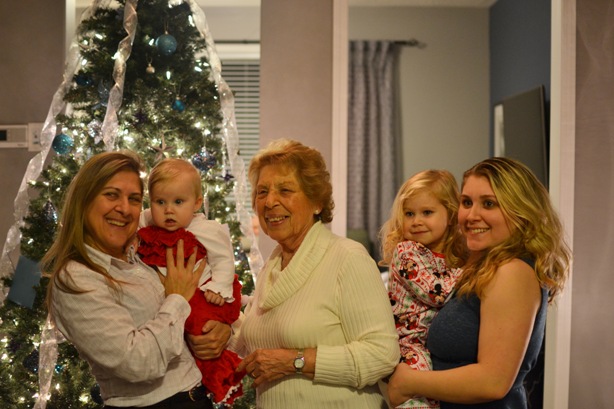
My relationship with my grandmother, whom I call Nanna, has always been a close one. Every week, without fail, I call my beloved Nanna for our weekly phone call.
As a busy mom to two young girls, I find it can be difficult to remember the most basic tasks. But, keeping up with my Nanna has become second nature—a tradition that I cannot forget.
Hearing her voice and having a chance to catch up together is something I look forward to. I find myself making a mental checklist of my day; whenever something particularly funny happens, I log it in my “to tell Nanna” list.
My Nanna and I have a mutual passion for good food, and recently I have been asking for pointers on cooking my favourite Maltese dishes, so that I can introduce my own children to the delight of homemade Mediterranean food.
Today, I decide to pick up some artichokes (popular in Maltese cuisine) from the grocery store. For months I have been passing through the produce aisle, tempted to purchase some fresh artichokes but unsure how to prepare them.
As soon as I return home from my grocery run, I call my Nanna to ask her how to cook with them.
I cradle the phone on my shoulder as she begins listing directions to me. I can hear the delight in her voice as she shares memories of cooking stuffed artichokes in Malta.
“We call Artichokes qaqocc,” she tells me, in her sweet Maltese accent.
“Ah-aw-ch,” I repeat, in my best imitation accent. I decide I’ll now refer to artichokes as qaqocc, another word to add to my minimal Maltese repertoire.
I rinse the artichokes under cool running water, surprised by how prickly the leaves are.
“They are very prickly, be careful!” My Nanna warns, “But they soften and are so tender once they are cooked.”
I start to carefully peel back each layer, as my Nanna continues to instruct me. I get closer to the centre, finally getting to the heart of the artichoke. By the end, each artichoke looks like a beautiful flower, almost too beautiful to eat.
“Next, you need to mix the stuffing for the qaqocc,” says my Nanna, “you want to try and stuff each leaf, get as much as you can inside.”
I finely chop some fresh parsley, mince the pungent garlic, crumble a leftover piece of artisan bread, and scoop out some anchovy fillets from a jar. Once all my ingredients are chopped as small as possible, I drizzle on some good quality olive oil, and sprinkle some salt and pepper, mixing everything together with my bare hands.
My Nanna continues to tell me stories of Malta, the delicious foods there and the afternoons they would spend eating artichokes with fresh sourdough bread and tuna. My mouth waters as I scoop the stuffing and gently fill the artichokes, making sure to get as much stuffing as possible beneath the tender leaves closest to the heart.
Once I’m done I rinse my hands in warm water and set my beautiful artichokes in shallow boiling water.
“It takes a long time to cook, Brianna, you must be patient and wait for the qaqocc to become tender,” warns my Nanna.
The smell of the garlic and olive oil mixed with the artichokes is making my stomach churn, I can hardly wait, but I know I must be patient.
“Okay, I’m going to go now and take care of the kids,” I tell my Nanna, getting ready to sign off after another lovely chat.
“Inħobbok ħafna, Nanna,” I say.
“I love you too, so much, Brianna.”
As I hang up, I feel my eyes moisten with tears.
My grandmother is my hero, the voice I always want to hear when I’m having a difficult day, or when I want to share exciting and joyful news. I’m thankful for every telephone conversation, every recipe passed down and every memory shared.
Inter-generational relationships between family members are some of the most beautiful and rewarding relationships to have.
What are some ways that you can cherish the older generations in your family, whether it is a grandparent, parent, aunt or uncle? Consider learning traditional recipes, taking them to a cultural festival where their culture is represented, learning a few conversational words of their native tongue or asking them to share their favourite memories and stories
Those of us who have the opportunity to record the history and culture from our past hold a priceless key to our family’s legacy—one that can be passed down to future generations.
~
Author: Brianna Bell
Editor: Toby Israel
Photos: Author’s Own // Joy/Flickr
~






Read 3 comments and reply